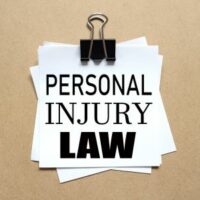Tips To Being A Good Personal Injury Witness

Most personal injuries cases settle before trial. That means it’s unlikely that you will ever be a witness in trial. In fact, if your case settles even before a lawsuit is filed, you won’t even have to have a deposition taken.
Your Job Starts at Deposition
But if a lawsuit is filed, your job as a witness starts at your deposition. That’s because not only is the defendant or the insurance company evaluating what you say, but they are also evaluating how you will “come off” to a jury, should your case go all the way to trial.
That means that you should start thinking about being a “good witness” long before your trial date.
How to be a Good Witness
Of course the best advice is to be yourself, and be genuine. You should never try to be someone that you’re not; the Defendant and the jury will see that immediately.
However, there are some points you can hit on that will help you be assessed as a good witness by the Defendant and the jury.
- Look at people when speaking to them – If you’re at a deposition, look up, use good body language, and at the attorney asking you questions. In trial, look at the jury, or at your attorney. Just like outside of the courtroom, people have a higher evaluation of witnesses who look up, are engaged, and who don’t mumble with their head down.
- Don’t ever lose your cool – This may be the biggest mistake witnesses make. The other side asks the victim tough questions, or challenges them, and they get rattled. In response, they get angry and defensive. A jury will pick up on that, and see you as hostile, angry, and unpleasant.
- Be talkative, but responsive – Just like a jury will look poorly on someone who mumbles in one word sentences, they also won’t take kindly to people who drone on, and get off topic. Keep your answers focused, and don’t go beyond what is asked of you.
- Know your facts – Certainly, you will be asked questions you don’t know the answer to. Additionally, you are certainly allowed to answer “I don’t know.” But you should know basic facts about your accident, your injuries, and your medical attention. Saying “I don’t know” to even the most basic questions will make a jury wonder if anything you say is based on accurate recollection.
- Fight for yourself – Yes, we did say that you shouldn’t be overly defensive or argumentative. But if you hear something you disagree with when you are being questioned, say it. If the other attorney mischaracterizes or misrepresents something you said, gently correct them. You don’t have to be a wallflower when being questioned.
- Don’t Exaggerate – You should never underestimate your pain, or try to make it sound like you’re better than you are. But the opposite is true; you also don’t want to overestimate, or exaggerate your pain, limitations, or how your injuries have affected you.
Schedule a consultation today with the Tampa personal injury attorneys at Barbas, Nunez, Sanders, Butler & Hovsepian to help you in your personal injury case, from start all the way to trial, if necessary.




